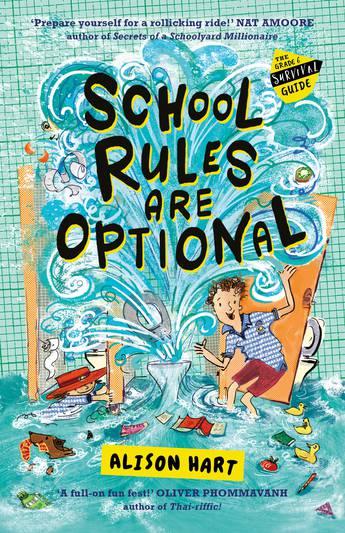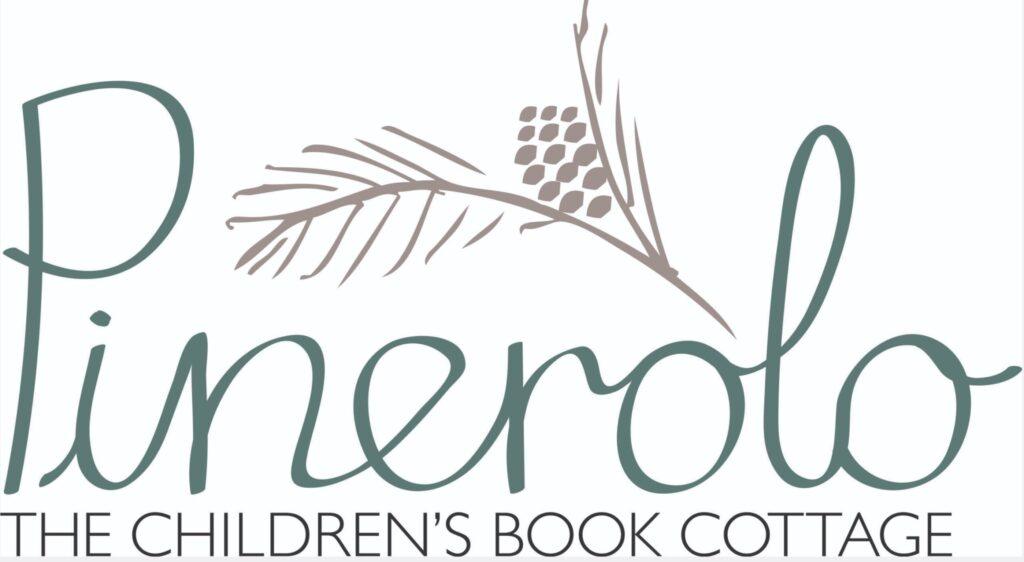Alison Hart answers some questions about her latest book, School Rules Are Optional. Thanks to Alison, Allen & Unwin and Reading Time reviewer Renee Mihulka for this interview.
When did you start writing this book? What challenges did you face?
I actually started writing this book several years ago in bits and pieces. Then in 2017, my daughter was away for two months and I set a personal goal to complete it during that time. After that, I got the manuscript assessed through Writers Victoria which gave me some very useful criticism and direction for the process of rewriting and editing it. I submitted it for commercial publication at the beginning of 2019.
The challenges I faced were sort of retrospective – I wrote what I wanted, then my daughter and the assessor (and later the publishing editors) told me what needed fixing. My daughter was very helpful with picking up on language changes that had happened while I was out of the room. Language evolves all the time, particularly colloquial language and Jesse and his friends are right in the centre of things. He needed a voice that wasn’t too old or two young or that was going to sound dated before the book went to print.
I also wanted the book to be a fun and relatable book for anyone. I didn’t want any ‘bad’ language in the book so that meant becoming aware of any words or phrases that have the potential to cause hurt. I discovered it’s just as easy to omit them. There are quite a lot of words. I picked some other ones.
Is Jesse based on anyone you know? Does that person really not like school camp?
Jesse changed quite a bit over the course of writing the book. Initially I wanted him to be naughty, always getting into trouble and not really caring about the consequences. Instead, he’s the kind of person who wants to do the right thing but never quite manages to, knows right from wrong and lives balancing life between the two. But he also has a sense of fun and wants to be part of things. As Jesse developed, more of my own young self emerged in him which I suppose was bound to happen. I remember being 11 – and it felt natural and honest to write how it felt to be that age in the context of a modern setting.
Jesse wants to like camp…he likes the idea of camp but he’s anxious and afraid of the unfamiliar. He doesn’t like staying over at friends’ places or if things change at home or at school. He’s not even sure what the problem is because in theory all those things sound interesting and fun. All his reasons he gives for not wanting to go to camp, while valid, are not the one true reason– something he hasn’t identified yet himself. I want Jesse to show it’s possible to be anxious and afraid but still have a sense of fun and adventure, of wanting to take part and being able to take part in his own way.
What drew you to writing humour for kids?
I think humour is the best way to manage most things. That doesn’t necessarily mean everything has to be funny – just that a light approach makes serious things tolerable and a sense of humour is an uplifting thing to have or be around. Kids have a good sense of the ridiculous and of fun. If they see a sand dune, they roll down it. As an adult you want to roll down it but a) it hurts and b) something tells us we can’t do stuff like that anymore. It’s not dignified or responsible. Societal norms tell us we can’t pay our car registration and go into hysterics because we drop an ice cream in the dog’s water on the same day.
As for writing for kids…this is where my writing voice naturally sits. I began writing stories and a journal at 11 so I remember it well. There are probably more books, films, and TV shows about the coming-of-age time of life than any other. It’s a pivotal time for all of us.
I don’t think I could write for younger children. I don’t really remember being very young and I think I need to be able to go there easily to write honestly.
What are some of your favourite funny books and authors?
Current writers – Australians Marcus Emerson, Andy Griffiths and Terry Denton. Jim Benton’s Dear Dumb Diary series, Lincoln Pierce’s Big Nate graphic novels, Tom Angleberger’s Origami Yoda series, David Walliams – illustrated by Sir Quentin Blake, himself a writer as well as an incredibly fantastic illustrator. He also illustrated for Roald Dahl whose humour is pretty dark from an adult perspective. From my own adolescence, Sue Townsend’s Adrian Mole series and from my childhood, Charles M Schultz’ Peanuts – beautiful artwork, funny and bittersweet on the same page.
Read Renee’s review of School Rules Are Optional.





